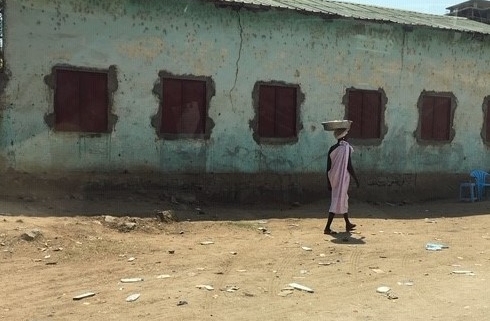In this blog post, Leslye Rost van Tonningen, the Director of CSRF, reflects on conflict sensitivity implications of COVID-19 responses in the South Sudanese context.
Conflict sensitivity is more important in times of crisis or rapid change. In current crises, such as South Sudan, Syria, Yemen, Somalia or Myanmar, conflict sensitivity and context analysis are particularly critical, as the decisions with regards to who is supported, how they are supported and the support they receive can deepen existing divisions, or create opportunities for building bridges.
COVID-19 has serious implications for existing conflict dynamics in South Sudan: The response to COVID-19-related impacts could exacerbate and magnify conflict dynamics as services and incomes are disrupted, populations move or quarantines and lockdowns are imposed. As they begin to adjust or re-orient current or develop new programmes humanitarian agencies will need to ensure that they are integrating conflict sensitivity into their analysis. This can by done by considering the implications of COVID-19 on South Sudan’s social, economic and political relationships and how they could spark conflict or violence. Factors that should be considered include: elite capture of state resources, particularly as these resources become scarcer and more contested, conflict between citizens and the state apparatus, particularly around lockdowns, curfews or the closure of ‘non-essential’ businesses, and conflicts within or between communities over access to key (and scarce) resources or perceived unequal treatment.
Support and build on local efforts: With the drawdown of international staff and restrictions on internal travel, many responders will be national NGOs or community-based organizations and any response should build on and coordinate with their ongoing efforts. Efforts that overlook local initiatives that are bringing people together across conflict divides to cope with the disruptions caused by COVID-19 risk undermining them. Local actors will also best-suited to provide guidance on how a response could be adapted to the local cultural customs/norms and practices. This will foster acceptability and ownership.
Effective and conflict-sensitive public health messaging and risk communications will be critical: Messaging around COVID-19 needs to be particularly conflict and culturally sensitive and be adapted to each of South Sudan’s communities. Messages or actions that are accepted within one South Sudanese community may create tensions in another (i.e. not shaking hands). Agencies should be supporting national staff to develop culturally appropriate messages that recognise local values and customs, rather than relying on a global, ‘one-size-fits-all’ approach.
A technical response to COVID-19 and its impact in South Sudan without due consideration of the differing local conditions can also cause harm: Finally, as noted by an increasing number of academics, aid workers and others, the current global ‘one-size-fits-all’ approach with lockdowns and physical distancing is not well-suited to the South Sudan context, and reflects a level of privilege only available to those wealthy enough to have a home where they can distance. 1 For the majority of South Sudanese who live in rural areas or informal settlements in urban areas, are day labourers or have low paying jobs, remaining in cramped quarters without the means to secure their livelihoods, this response may generate more pain, and associated violence or conflict, than the virus itself. The South Sudan aid community needs to ensure that they are working with the South Sudanese Government to continuously assess the conflict sensitivity issues of proposed measures to ensure that they are not pushing vulnerable populations to the point where they feel that violence and conflict is the only way that they can survive the COVID-19 control measures.
Notes:
- See recent blogs/articles by Paul Richards, Alex de Waal, Alex Broadbent and Benjamin TH Smart, Annie Wilkinson. ↩



 © JWale2
© JWale2